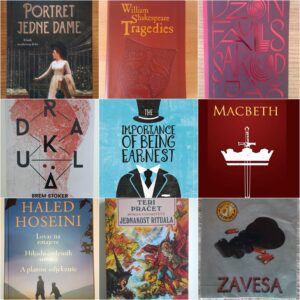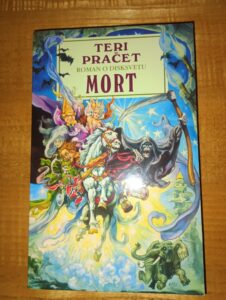King Solomon’s Mines (1885)

…………………………………………………
King Solomon’s Mines Book Review
King Solomon’s Mines is an adventure novel by H. Rider Haggard. It was released in 1885. It remains one of the best-known adventure tales from this period.
………………………………………………….
“Everything has an end,
if only you live long enough to see it“
…………………………………………………..
…………………………………………………..
A group of adventures trek through an unexplored region in Africa in search of the protagonist’s missing brother. This novel was created by Haggard in an effort to capitalize on the success of Robert Louis Stevenson’s ‘Treasure Island’, but the book turned out to be so successful that it influenced many others in its wake. It was the first ever novel in the Lost World subgenre of adventure and fantasy stories, a subgenre that obviously is no longer alive due to the fact that the entire planet is now very well known.
While it’s not quite as adventurous as the aforementioned story, this is still a very charming, spirited tale that is particularly effective at capturing this place and time in history that is now long gone. Haggard wrote with many meticulous details about the traditions of these African tribes and he went on to focus on both the positive and the negative elements of their culture – they are noble and brave, but also very dangerous and even dealing with human sacrifice in the book’s most grim section.
Whenever you read a book from the nineteenth century, you have to accommodate to the author’s viewpoint that is now very much dated and problematic. Thus, I fail to understand why so many readers now would criticize him to an enormous extent. I find that especially egregious having in mind that he was in some respects quite ahead of his time.
He lived in Africa, so he got to meet and learn about these tribes, which resulted in some appreciation for them. In one instance, he even brings a point that there are black men who are bigger gentlemen than their white counterparts, which was a hugely progressive statement for his time. The friendships that the whites strike with the blacks was too exotic and overplayed in descriptions, but still admirable.
…………………………………………………..
…………………………………………………..
The only problem I’ve had with his descriptions of these tribes is their use of language that evokes Shakespeare for some unbeknownst reason to me. Why would these black people living in Africa speak like British gentlemen of yesteryear? It made no sense to me whatsoever and it was one of the few elements in his writing that I found immensely ridiculous.
Thankfully, the rest of his writing is pretty good, especially as it relates to descriptions of natural landscapes and the harsh terrains. The highlight for was the desert section of the story and I wish that there more of these survival elements. The final part in the cave was also thrilling while all the emphasis on warring tribes and their gruesome traditions could have been trimmed if you ask me.
King Solomon’s Mines has solid, albeit far from great characterization. Allan Quatermain is a solid protagonist who is dignified, but also rather pessimistic at times, which made him more interesting. Sir Henry and Captain Good are both overly one-note heroes and companions to the central character and the same goes for Ignosi on the African side of things. Twala is more memorable as this menacing villain while of the two female characters only Gagool is the memorable one and this witch was truly a terrifying, imposing villain.
…………………………………………………..
…………………………………………………..
The book is rather slow-paced and far from engaging in its middle section, which was the weakest one for me. The beginning and ending are both thrilling, but the rest of the novel should have been brisker and more streamlined in narrative. As for its themes, it deals with British Imperialism sometimes in the negative light, but it is also too complementary of it. Its emphasis on race relations is dated now, but it must have been striking back then. Science over superstition and the importance of knowledge are best explored and it is strongly critical of materialism, but the views that the author has on the sexes are definitely antiquated.










